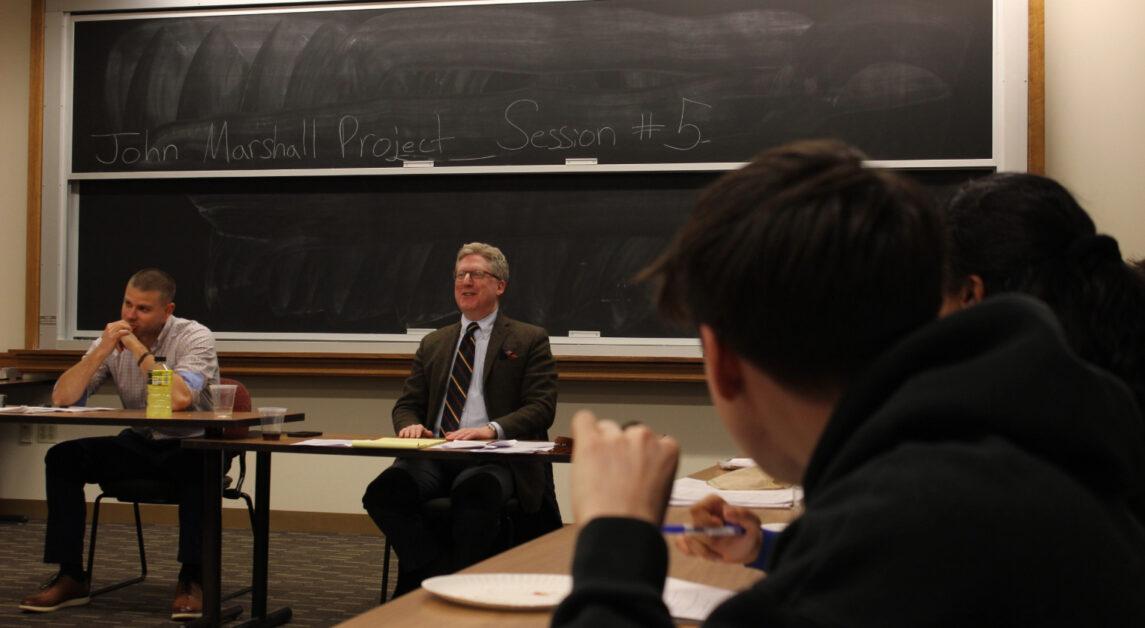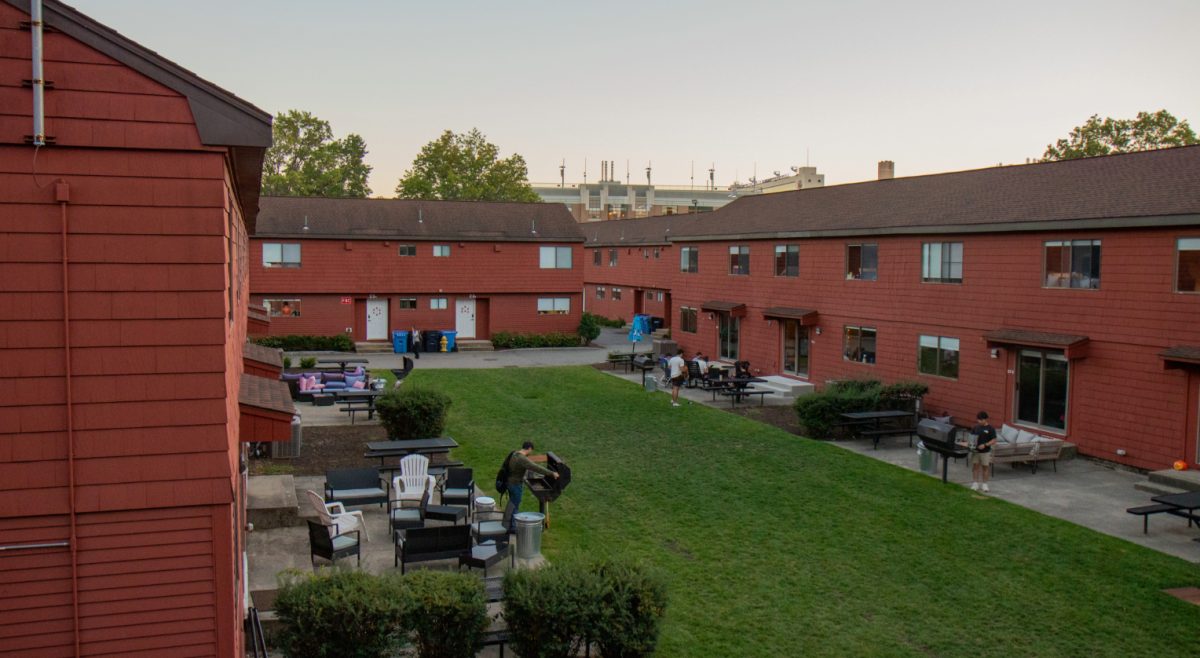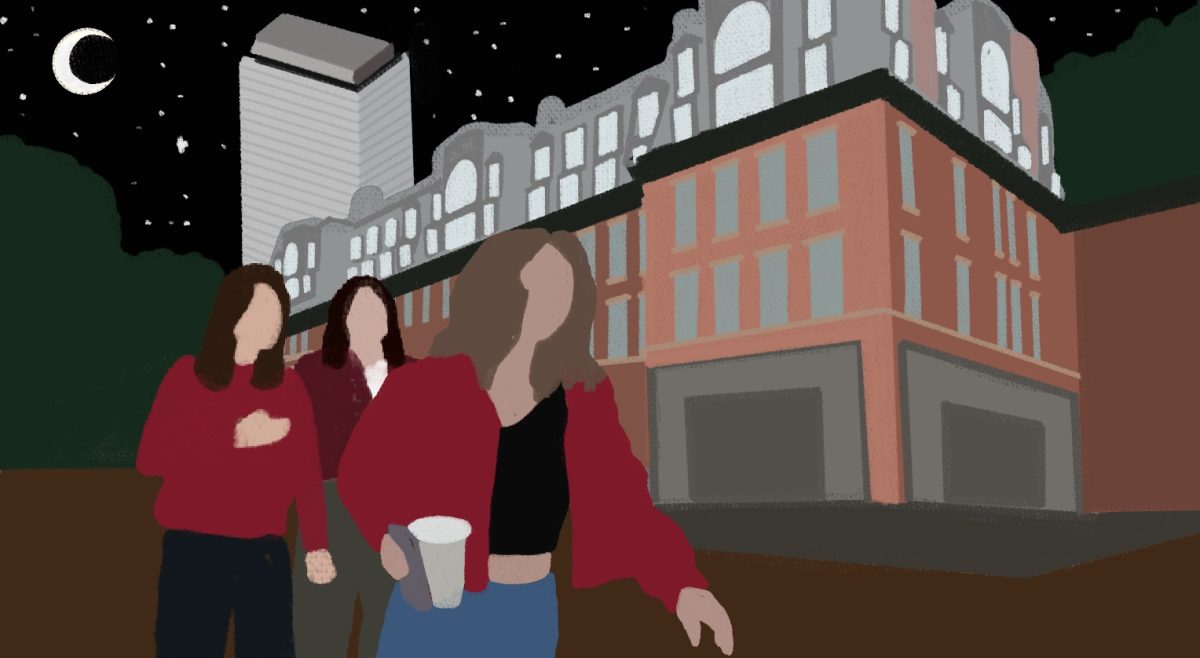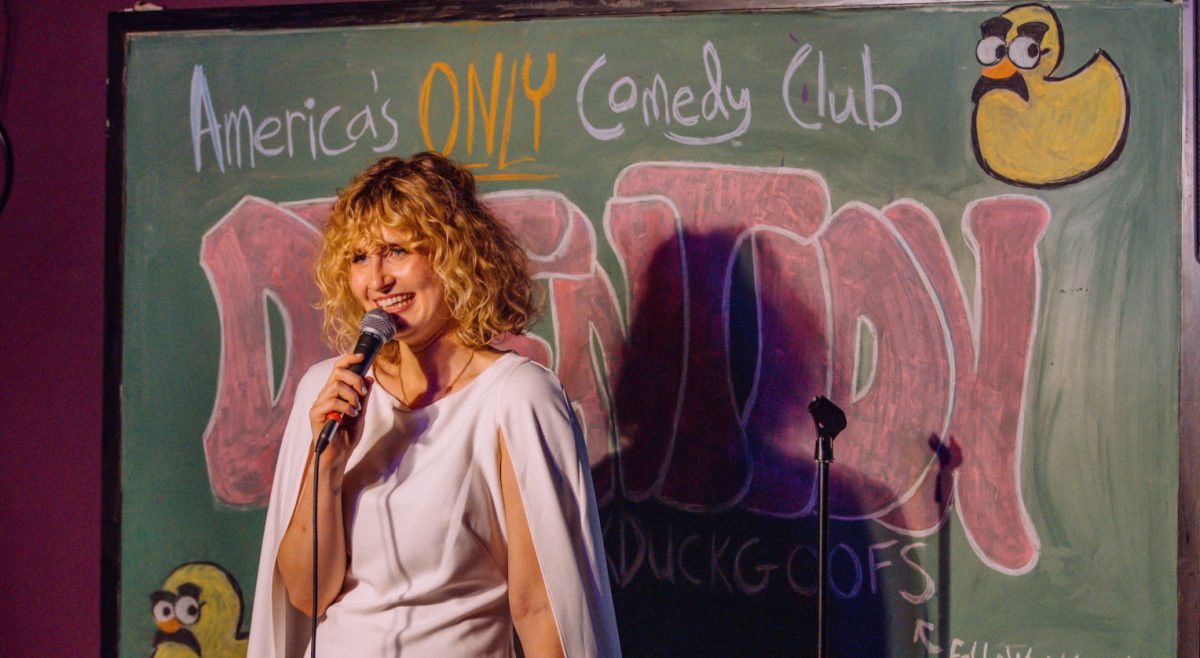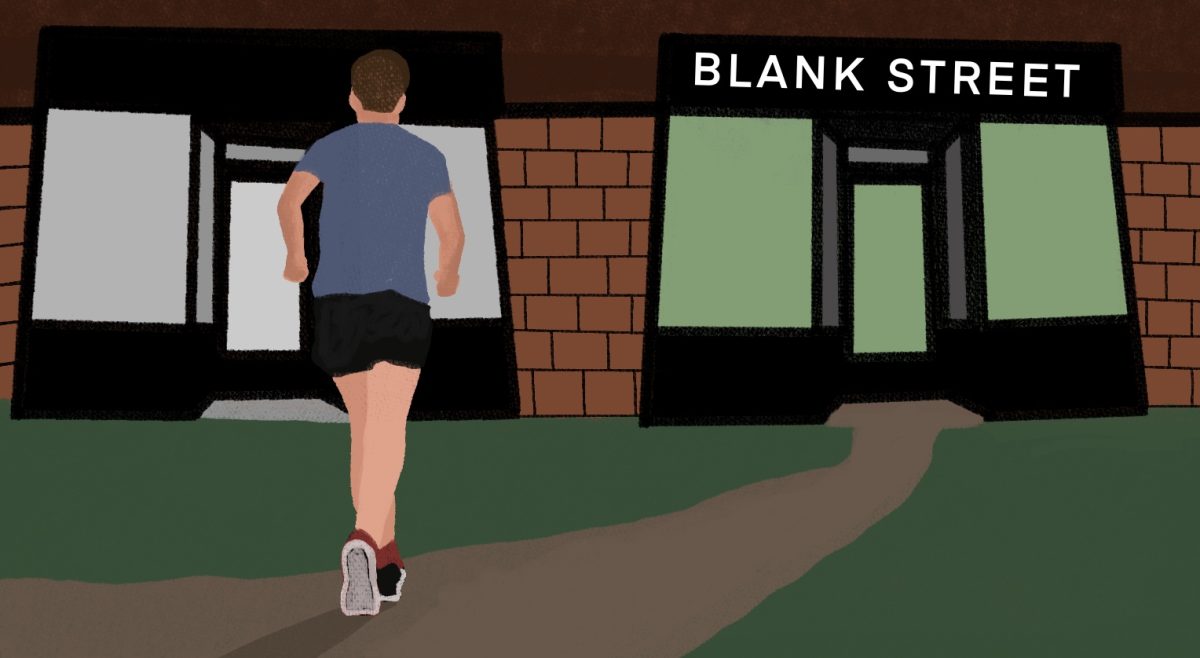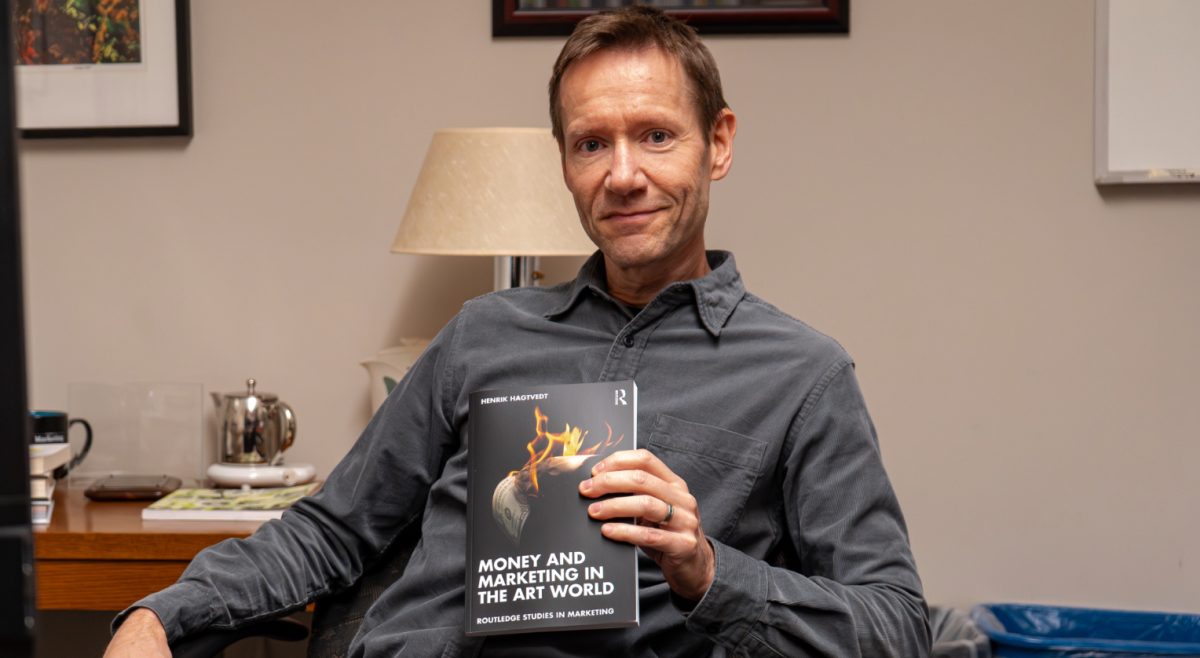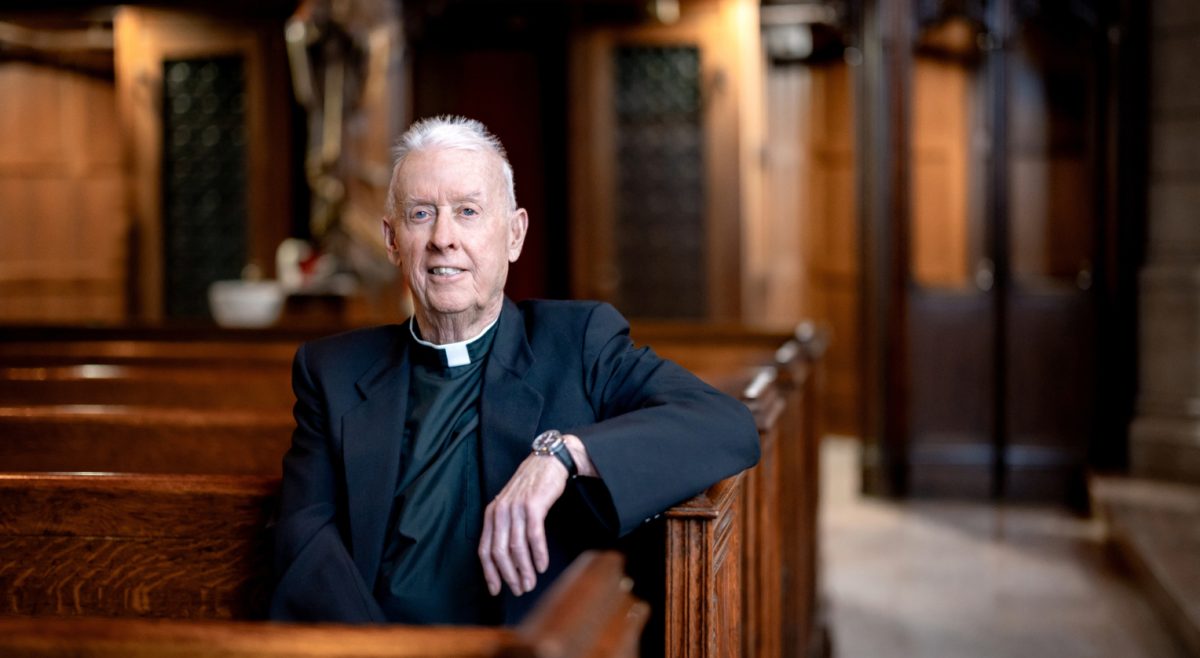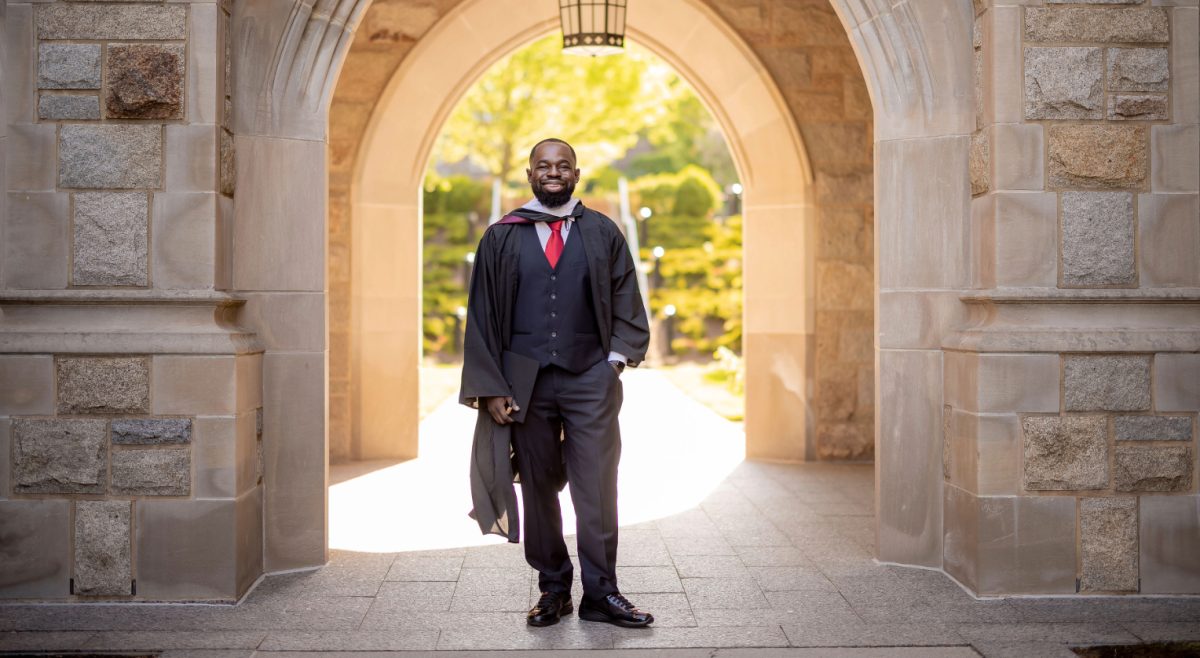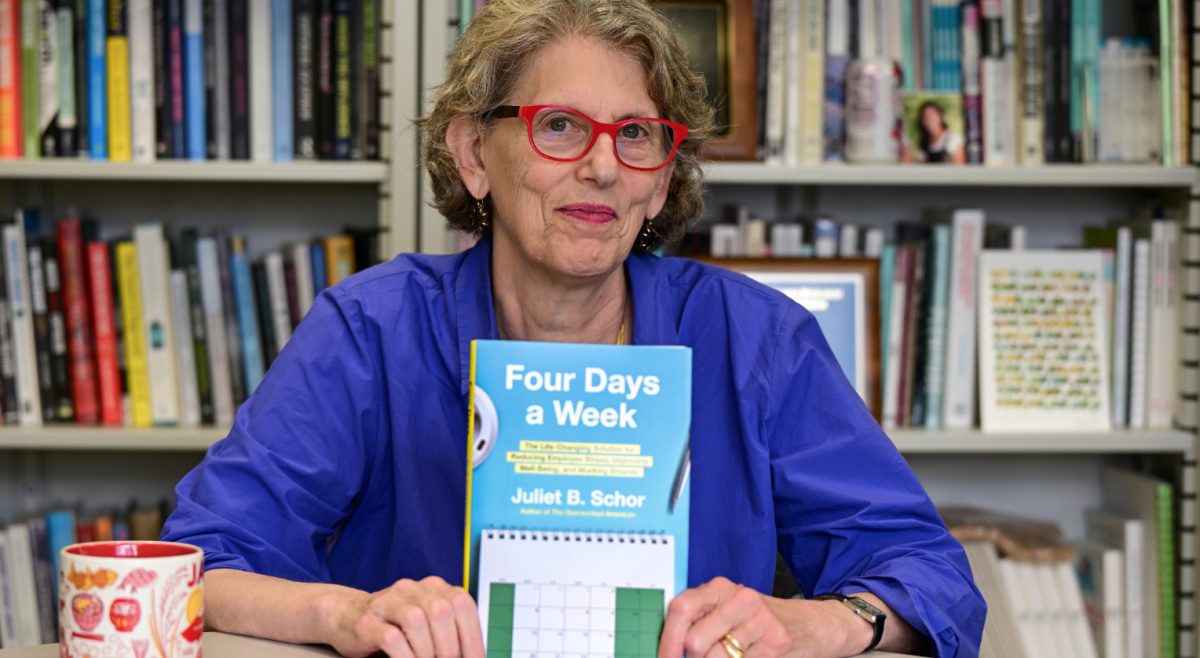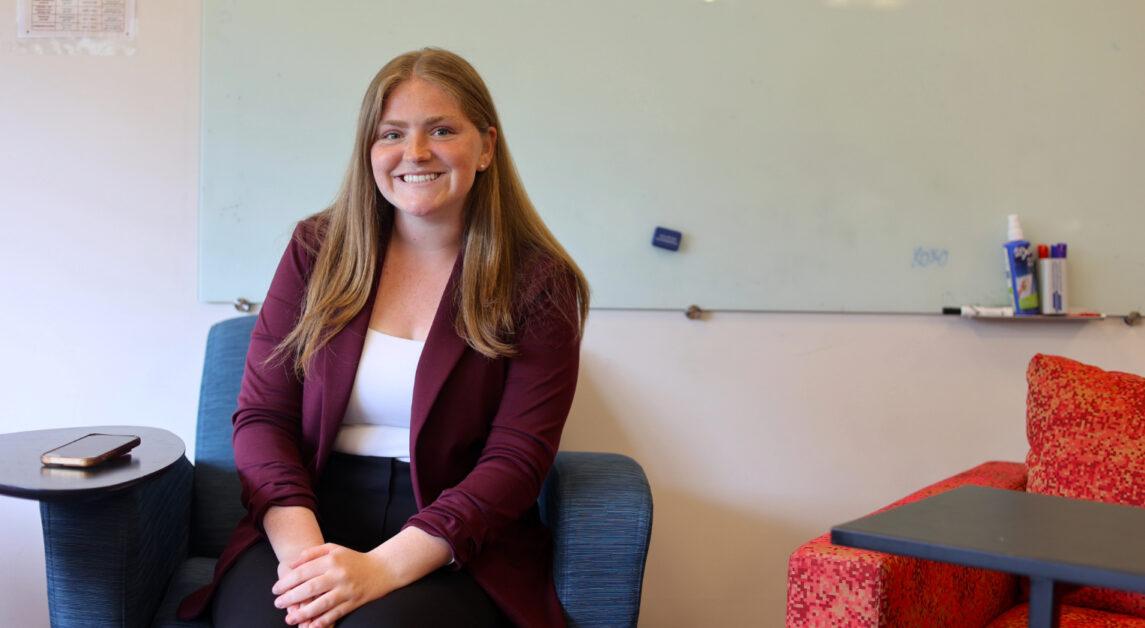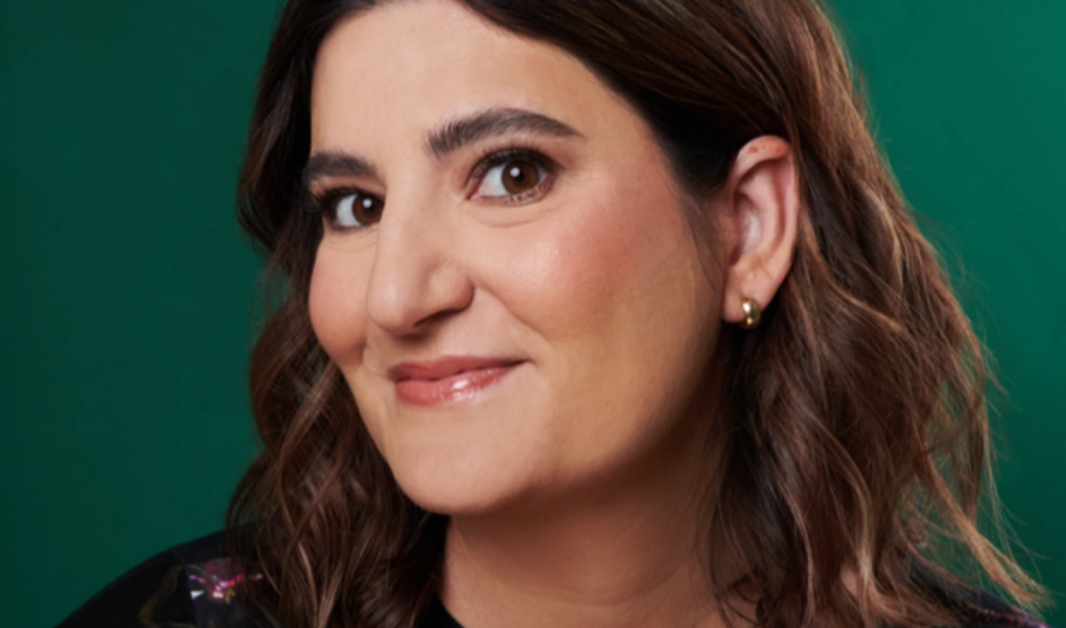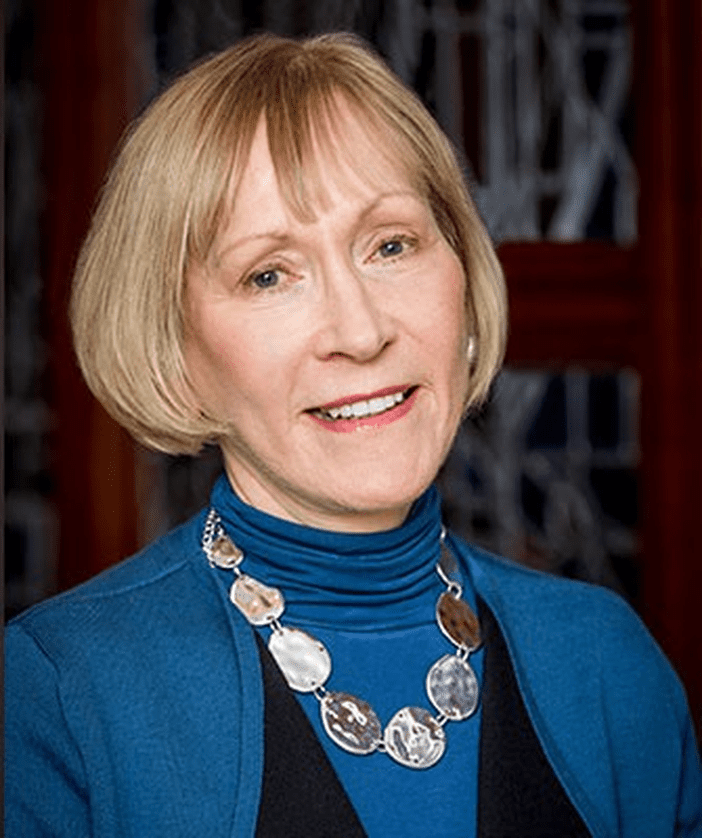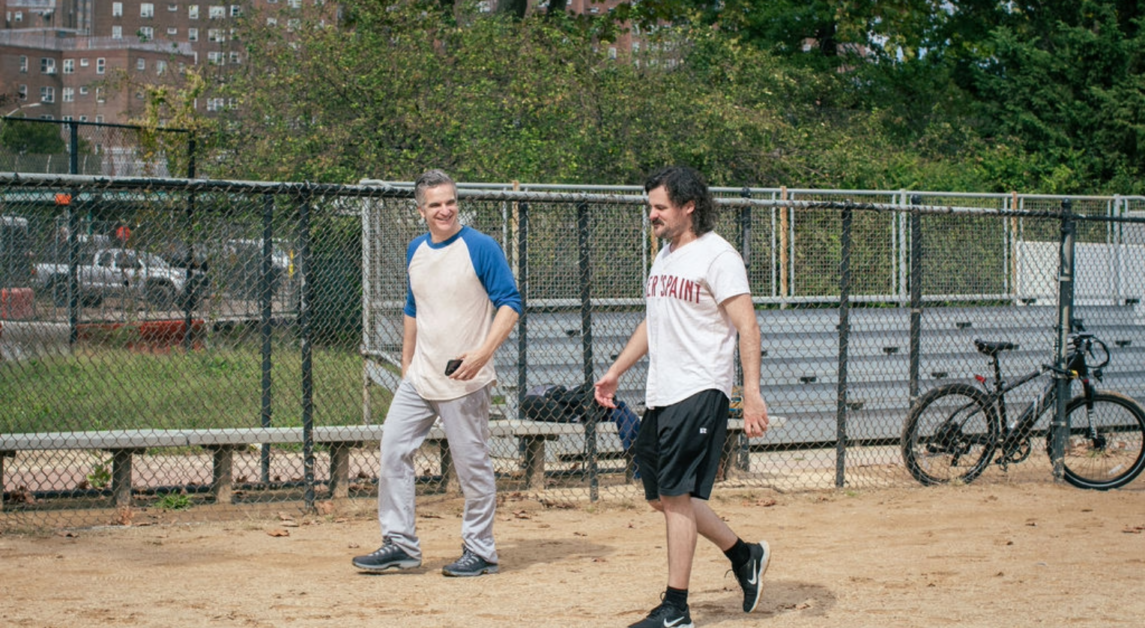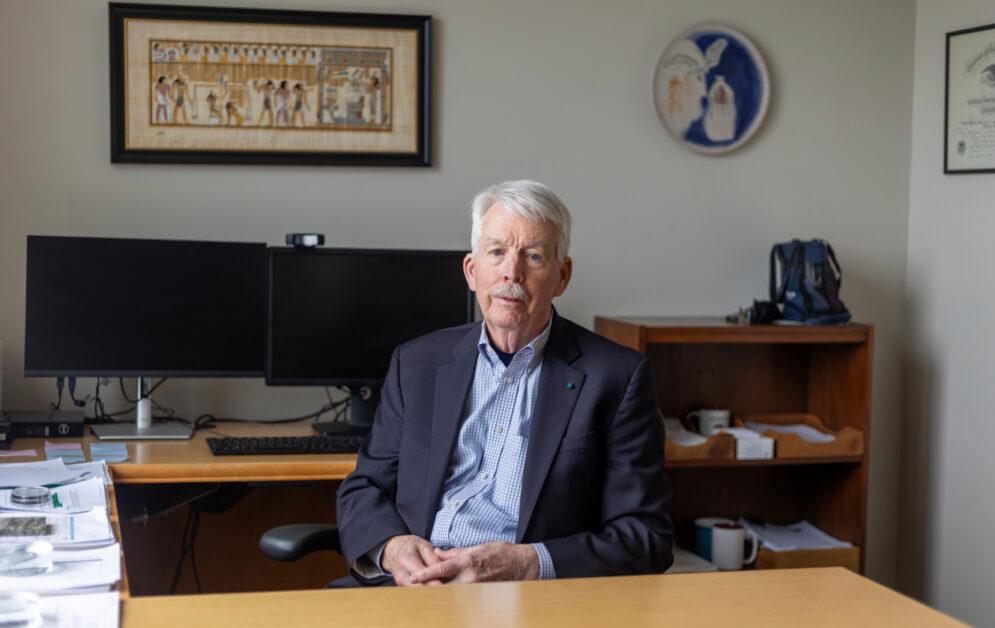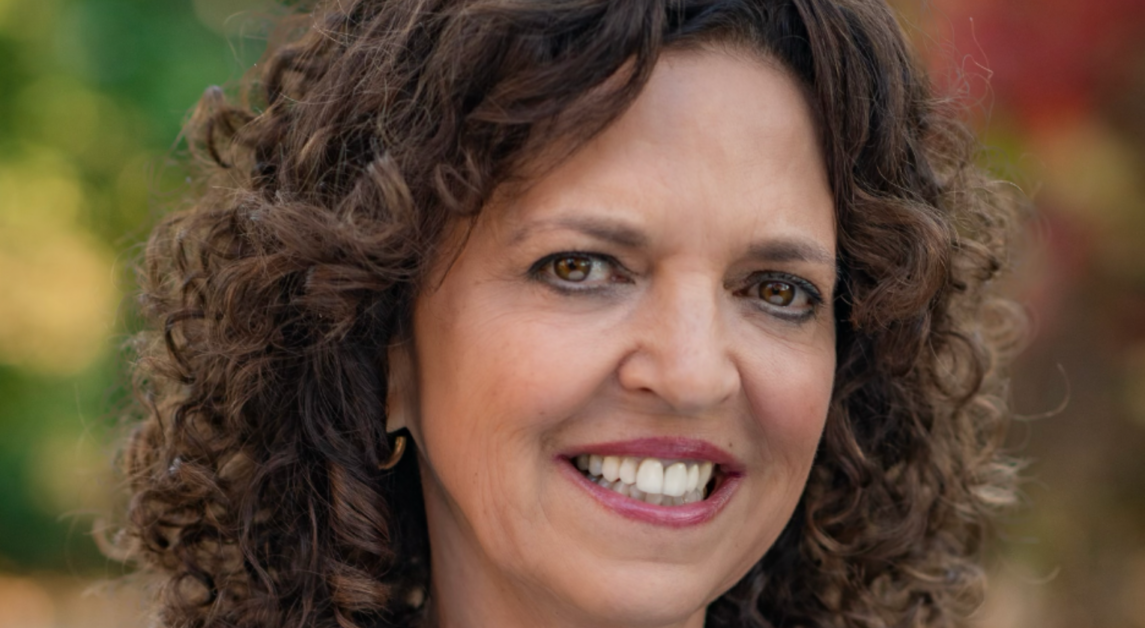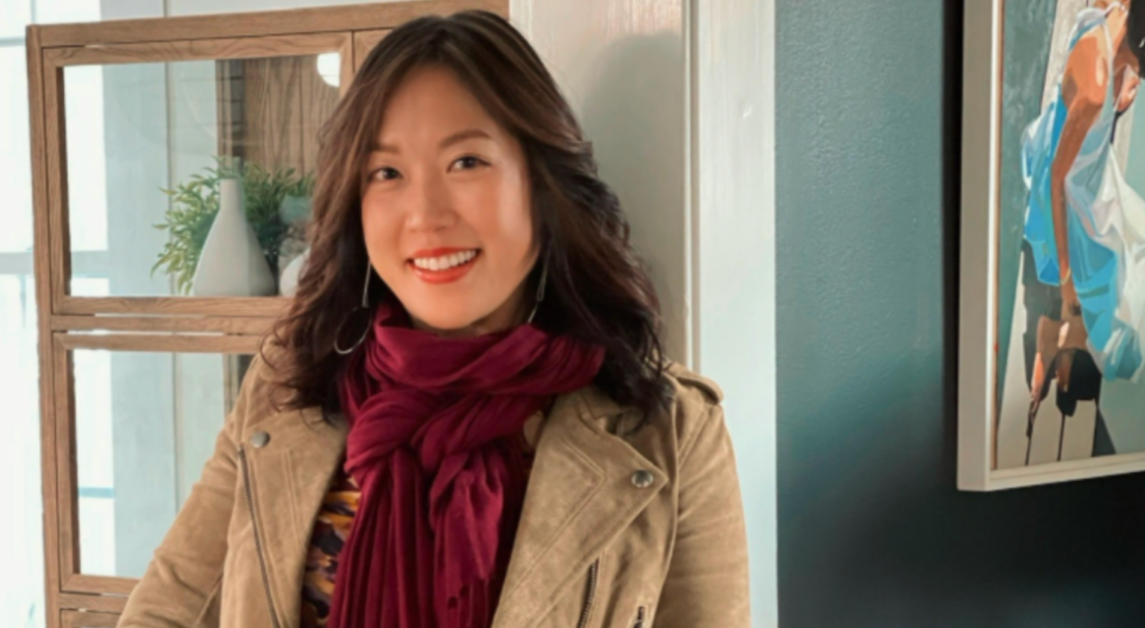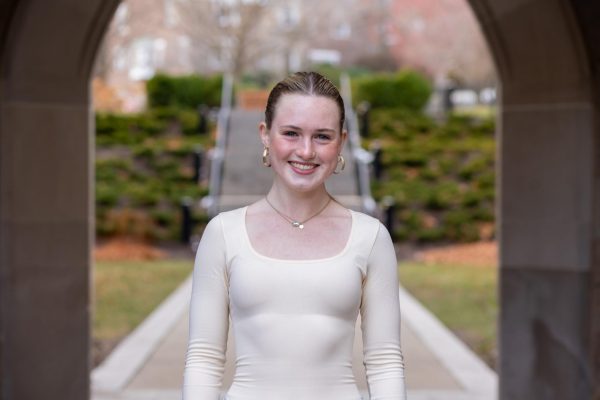In an age of ever-present social tension, it can be difficult for students to come together and talk freely about political issues. Truly open and honest conversations are becoming a rarity.
But at Boston College, the John Marshall Project (JMP) promotes these challenging conversations.
Housed in the political science department, JMP encourages students to work toward upstanding citizenship and statesmanship in the United States. The program is named after John Marshall, the fourth chief justice of the Supreme Court.
According to David DiPasquale, the program’s director, Marshall was a major proponent of civic education.
“He tried to communicate, especially to the young people in this republic, the need to be informed about the goings-on in the country,” DiPasquale said. “And so the John Marshall Project takes that and runs with it.”
Marshall also emphasized the importance of debating current events through public discourse—one of JMP’s main objectives, Dipasquale said.
“I think the opportunity for a truly enlightening liberal education begins to appear when students are made aware of this possibility that the ground on which they are walking is not as secure as they thought it was,” DiPasquale said. “To speak to those who have different opinions is—and should be regarded as—a gift.”
Student fellows are admitted to the program through recommendations from BC professors and one-on-one interviews with DiPasquale in the fall. Throughout the year, fellows meet monthly for extended, loosely guided discussions on social and political issues.
Prior to this year, these monthly discussions were structured around news and current events. Dallas Terry, a doctoral candidate in the political science department and moderator of JMP’s monthly discussions, said this old structure made the project disordered and difficult to plan for.
“The way we used to do it was we literally just kept an eye on the news,” Terry said. “You never know when Ukraine is going to get invaded or something like that. And then it gets invaded, and all of a sudden you get your next discussion.”
This year, the program is organized by a syllabus with different topics for students to read about and discuss each month. In August, Terry said DiPasquale gave him a theme to help guide topic selection.
“He gave me, at the beginning of the year, a vague term—civic virtue. And he’s like, ‘That’s what this year’s theme will be,’” Terry said. “He wanted me to kind of come up with an idea of a trajectory for the year.”
For each topic, fellows are assigned readings to complete, ranging from academic journals and news articles to philosophical texts. When selecting the readings, Terry said he focuses on engaging with different perspectives.
“I’m looking at anti-religious journals, I’m looking at pro-religious journals,” Terry said. “I’m looking at people who have one understanding of religious liberty and somebody who has a different understanding.”
Throughout this year, fellows have focused on a range of topics affecting the nation, including American individualism, the value of the humanities, and the role of the family in civic life. During discussions, students draw not only from the texts but also from their diverse personal experiences.
“Most of these students come to the table with their own backgrounds and perspectives,” Terry said. “It kind of just happens that these students, often the best students, are the ones who think for themselves.”
DiPasquale said he makes a distinct effort to compile a group of students with a wide array of backgrounds and opinions.
“One of the most important things we do in the Marshall Project is we make it very much clear from the outset to students that there are no ideological litmus tests at play here,” DiPasquale said. “What we’re looking for is a strongly diverse community, an ideologically diverse community.”
Charlie Wolther, a JMP fellow and MCAS ’24, has been a part of the program since September of his junior year. Wolther said he believes the discussion topics of JMP meetings are strikingly similar to everyday conversations with friends and family, even though their focus is political.
“I think to me, in one form or another, the profound things—the really important cool things being discussed in JMP—are things discussed by people, consciously or not, in everyday life,” Wolther said. “I think if you ask any of the people in JMP, they believe that politics is a part of the family, is a part of any human being.”
Though students are dealing with controversial topics, Wolther said the informality of the meetings allows students to feel more comfortable being honest about their beliefs.
“Normally, I think the average person is like, ‘If I’m going to have a political conversation, that’s a potential for trouble,’” Wolther said. “When we go to JMP, we go in excited to have the conversation. And despite the fact that we disagree, the conversations are always fun.”
Luisa Esquivel, another JMP fellow and MCAS ’24, said the level of passion that students bring to these discussions can cause moments of tension, but the amiability shared by the group always prevents hostility.
“If something gets heated, for example, we all start laughing because we love that people are so passionate,” Esquivel said. “But at the same time, we’re all friends at the end of the day, and I think that’s something sort of beautiful about the project is that you’re able to bond with people who are so different from you, but at the same time, have that similarity of being passionate.”
Both Wolther and Esquivel said they are able to bring course material from their classes into JMP discussions while also applying takeaways from JMP discussions to their coursework.
“We have that knowledge that the political science department has given us to supplement the readings, and the readings are really able to give us knowledge that will help us in the classroom later on or even in conversations with people in real life,” Esquivel said.
If professors were to promote the values of JMP while teaching, Esquivel said it would be possible to replicate these honest dialogues in any classroom.
“I think that if we have the spirit of openness at BC and in all departments, not only will that manifest into openness in the classroom without fear of retribution, but also openness in our dialogues with our friends and our family,” Esquivel said. “I think that learning to interact with these diverse perspectives is the way to do it.”
This willingness to engage in dialogue is needed beyond BC’s gates as well, DiPasquale said.
“For the sake of the campus and for the college, but I think also for the country—unless we can start speaking to each other civilly, despite these ideological differences, I don’t think we’re going to make as much progress as I think we would like to moving forward as a nation,” DiPasquale said.
Overall, DiPasquale said JMP is the epitome of what a liberal college education should look like—open, honest, and challenging, in an environment where students can use the full potential of their minds.
Although both Wolther and Esquivel will graduate in the coming months, they both said their experiences and conversations in JMP will stick with them for years to come.
“I’ll definitely look back on it as one of the best experiences in college for me,” Wolther said. “It has presented an opportunity unlike any I’ve had before to speak with a group of people and feel like we’re having group discussions.”

